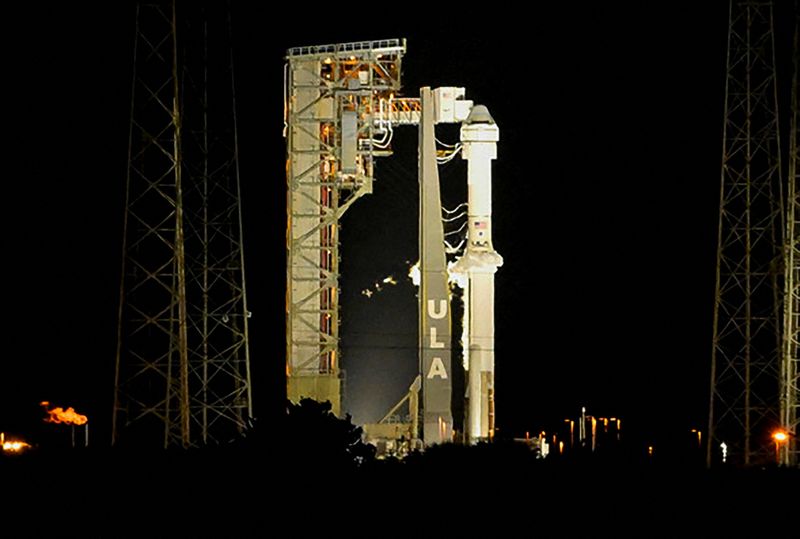By Joey Roulette
WASHINGTON (Reuters) - NASA and Boeing (NYSE:BA) are targeting June 1 for the company's first crewed launch of its Starliner spacecraft as engineers investigate the cause of a helium leak and examine how it could affect crucial parts of the mission, the agency said Wednesday.
The helium leak on Starliner's propulsion system has held up the spacecraft's first mission to space carrying humans, initially planned for May 7 but successively delayed as NASA and Boeing attempt to fix the issue and run new tests on the spacecraft.
The U.S. space agency said engineers have broadened their review into the leak, which was traced to a valve component on a single thruster, to include an assessment of Starliner's propulsion system and how it might be impacted by the spacecraft's helium system.
Starliner's helium system is used to add pressure to the fuel that powers its onboard thrusters, which are used to maneuver the spacecraft in orbit.
Boeing's Starliner spacecraft, developed to ferry NASA astronauts to the International Space Station (ISS), has been delayed years and is more than $1.5 billion over budget. Persistent Starliner development challenges have illustrated Boeing's struggle to compete with Elon Musk's SpaceX on tighter budgets.

Starliner's debut crewed flight includes NASA astronauts Suni Williams and Butch Wilmore. The mission is a final test before NASA can certify Starliner for routine missions to and from the ISS.
The space agency said Boeing has additional launch opportunities on June 2, 5 and 6 should it miss the June 1 window.